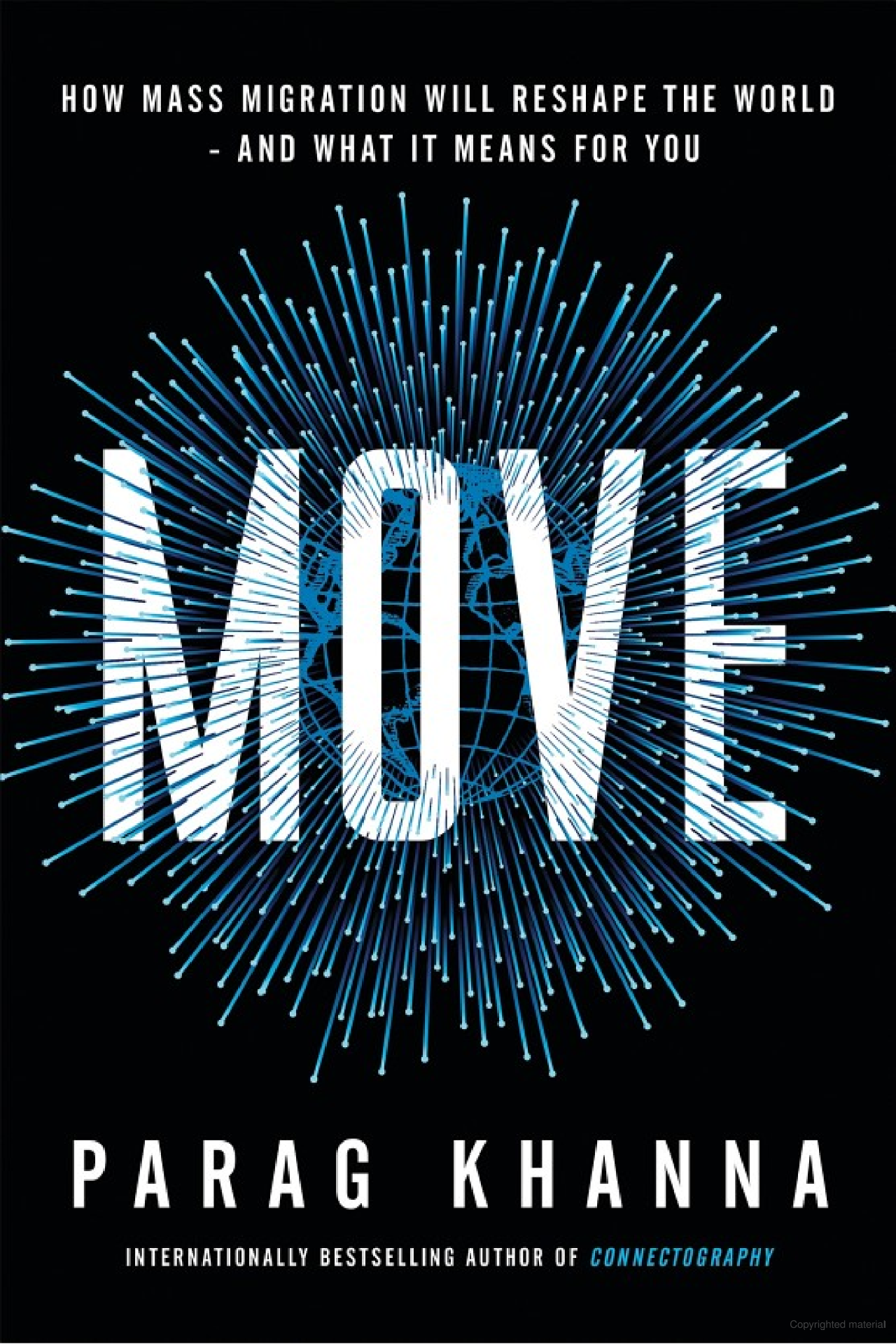
Parag Khanna’s book, Move: How Mass Migration Will Reshape the World- and What it Means for you masterfully nurtures the exploration of human destiny within a geopolitical framework. A real page tuner, Khanna probes his readers to consider what the world will look like in the year 2050, as he examines the complex interplay climate change will have on global governance, economies, technologies, and material resources.
As a global strategy advisor, it is clear that Khanna’s career has profoundly influenced his writing. He characterises his vision of the future in terms of greater mobility and sustainability. Initially, Khanna tantalizes the reader with a utopian vision of open borders. In an era marked by the resurgence of nationalism and populism, porous borders seem inconceivable. However, as his work unfolds, he reveals that this vision comes with a caveat.
The primary lesson that Khanna offers is that human life has never been stationary. In the prologue, he sets the stage by discussing the recent memory of the COVID-19 pandemic. This context places crises and global transformation within an ongoing metanarrative. Khanna positions the pandemic, and now the imminent issues of climate change alongside out historical experiences of genocide, war, and revolution. Consequently, this book should be regarded as a valuable enticement to discover how this incoming seismic shift will further reshape the planet’s human landscape.
Without giving too much away, throughout the chapters, Khanna meticulously examines the consequences of geographic dispersion caused by global warming. He urges the reader to critically engage with the intricate relationship between humanity and its environment. His guidance leads readers to contemplate how mass migration will render entire geographic entities obsolete and gives them insight into what a Malthusian crisis could look like in this futuristic framework.
Despite the book being rooted in counterfactualism, the author’s authoritative tone imbues the book with a captivating and convincing narrative on human destiny. Khanna is able to traverse the tentative topic of climate change without stimulating feelings of nihilism and eco-anxiety in his audience. Khanna cleverly positions the future as something to actively prepare for. His detailed insight into the global landscape in the years leading up to 2050 instils a sense of agency and preparedness in the face of immense global challenge.
Publication Date: 12 December 2023








